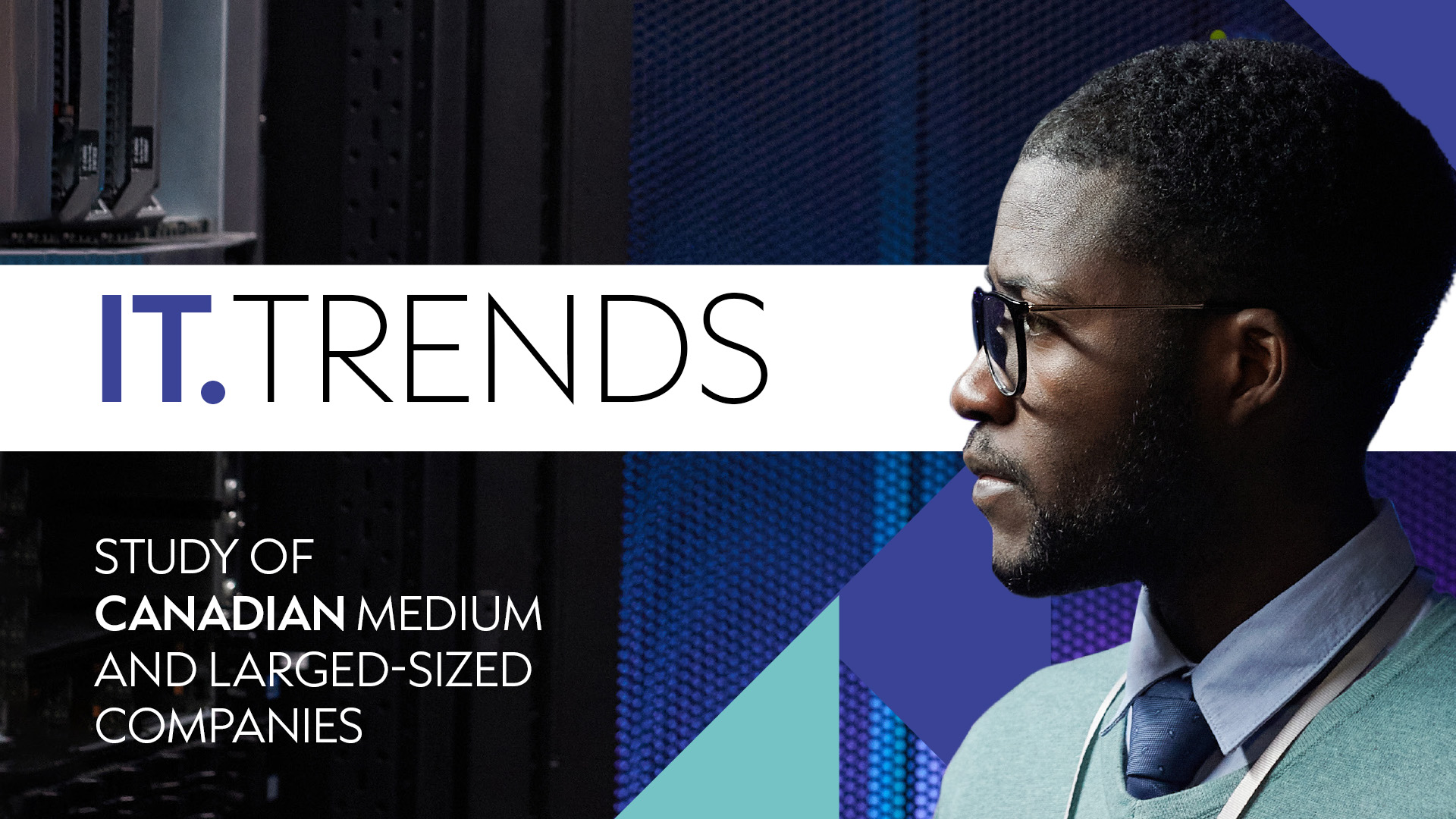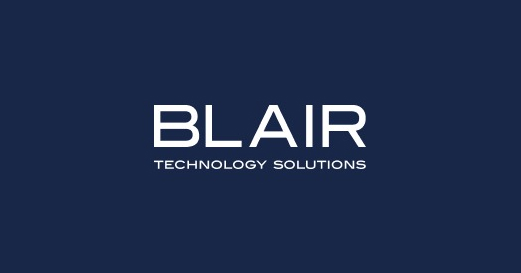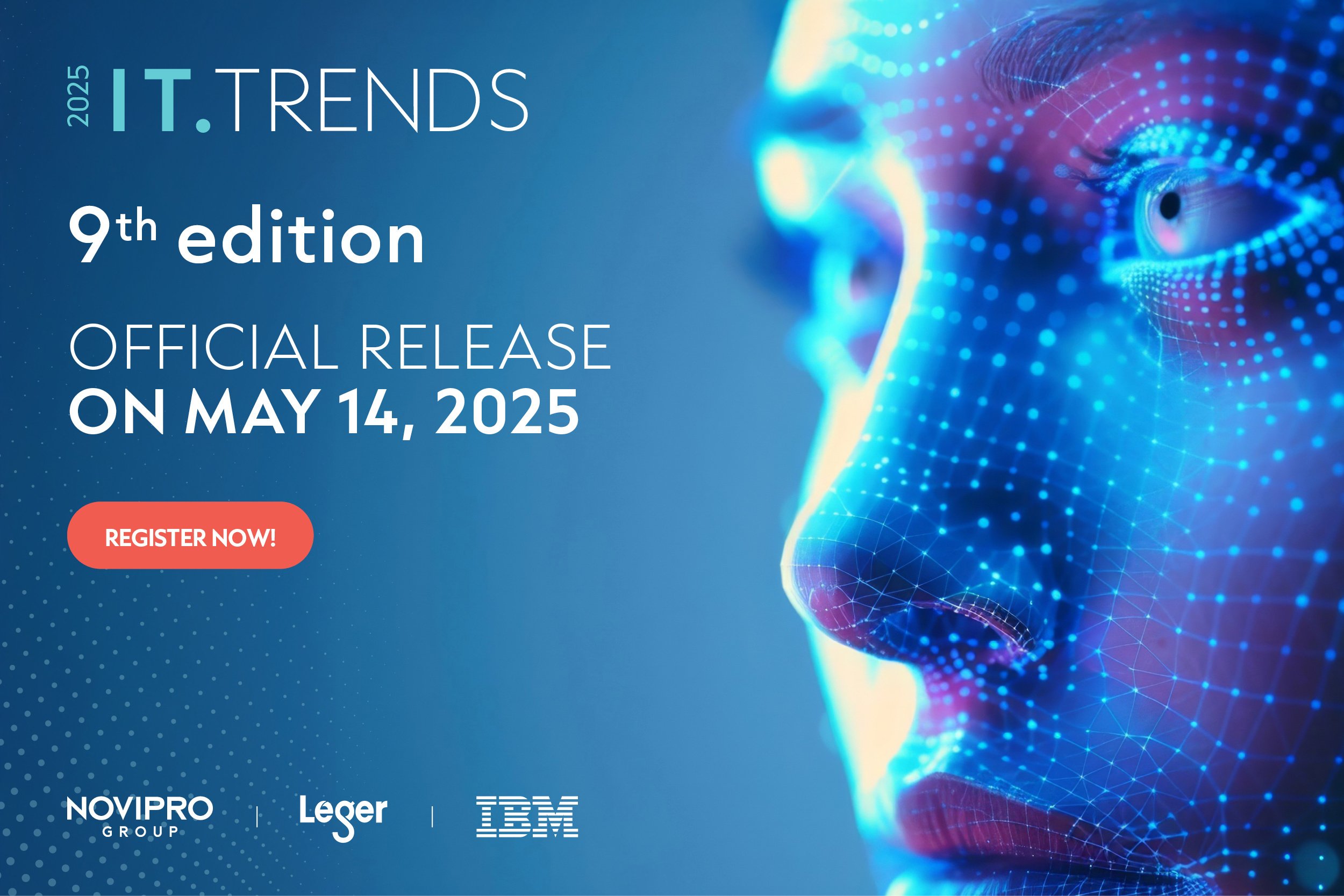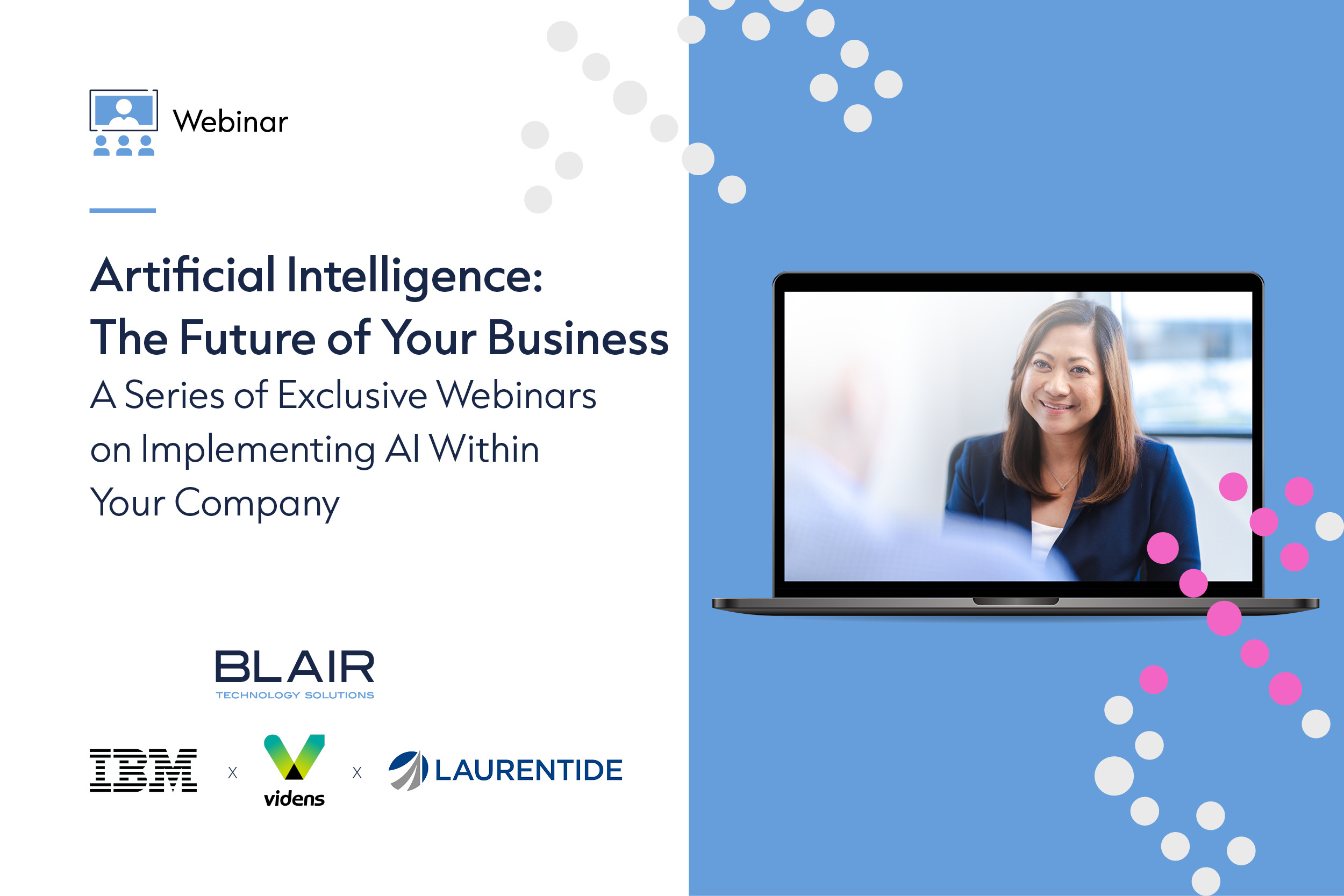Artificial intelligence (AI) is revolutionizing the way companies can leverage their data. In this article based on a recent webinar by our sister company NOVIPRO, Kevin Rosenbom, Account Director and Solutions Representative at NOVIPRO, and Michael Bélanger, Artificial Intelligence and Business Automation Technical Expert at IBM Canada, share their vision and explain how AI is being put to work for businesses.
NOVIPRO Group and Leger's annual IT Trends study reveals that 92% of Canadian IT decision-makers believe that AI has transformed or will transform their industry. While traditional AI facilitates automation, analysis, recognition and decision-making, generative AI creates new content with existing data.
For more statistics and in-depth analyses on artificial intelligence, download IT Trends!
A Brief History of AI
The origins of AI date back to the 1950s. At that time, machines were being designed to simulate human intelligence. Programs were created that could play chess and solve simple mathematical problems. The technologies of the time, however, limited progress.
Over the decades, technological advances enabled the emergence of systems capable of reproducing human reasoning in specific fields. Machine learning and deep learning made their appearance in the 2000s. "We remember Deep Blue's victory over chess champion Garry Kasparov in 1997, and more recently, in 2016, the performance of Google DeepMind's AlphaGo," says Kevin Rosenbom.
AI Breakthroughs
AI is being transformed by machine learning and deep learning. Systems learn from data sets, continuously improving their performance without human intervention.
Thanks to AI, companies are now processing massive volumes of data at incredible speed, offering unprecedented prospects for process automation and operational efficiency.
The Benefits of AI in the Enterprise
Canadian companies are already identifying multiple advantages to the integration of artificial intelligence. In an economy marked by a shortage of IT resources and numerous cyber-attacks affecting the future of businesses, AI is emerging as a tool that can relieve companies of certain tasks. "According to our IT Trends, increasing productivity (21%) and strengthening cybersecurity (13%) are the top two objectives for integrating AI solutions in businesses," mentions Kevin Rosenbom.
In addition to supporting companies in some of their actions, artificial intelligence also facilitates operational efficiency at a relatively low cost. IT Trends respondents also believe AI adoption and data management can be key drivers for reducing operational costs (11%), improving customer experience (12%) and automating processes (13%).
These many benefits are seen as added value for integrating AI into enterprises to benefit from greater operational efficiency and competitive advantage.
But how can artificial intelligence be used ethically to help companies perform and remain competitive in the marketplace?
The Arrival of IBM watsonx
IBM's watsonx artificial intelligence platform illustrates a major advance in the field of AI. Initiated in the early 2000s, this technology proved its worth in 2011, when it outperformed human champions in the famous TV game show "Jeopardy!". This performance revealed its exceptional skills in understanding natural language and processing complex questions.
IBM subsequently extended the use of watsonx to a variety of business applications, including healthcare, finance and customer service. Watsonx analyzes massive volumes of data thanks to its natural language processing and machine learning capabilities, offering precise, contextualized answers. Since its launch, watsonx has rapidly evolved and gained in popularity thanks to its ability to provide personalized solutions and transform data into actionable information. This technology embodies IBM's commitment to driving technological progress and providing powerful tools for businesses to optimize their operations and drive innovation.
In today's AI landscape, IBM is launching its watsonx platform, with the ambition of pushing back the boundaries of today's technological landscape. "With worldwide recognition and collaboration, IBM is the company with the most artificial intelligence patents in the world. We make our in-house laboratory available to our partners, in particular NOVIPRO [Editor’s note: and Blair Technology Solutions, its company sister part of NOVIPRO Group]," emphasizes Michael Bélanger.
watsonx offers several distinct advantages to companies seeking to improve their operational efficiency, with three main pillars: watsonx.ai, watsonx.data and watsonx.governance.
watsonx: a Plus for Companies
With its extensive library of models, watsonx makes it possible to train, validate, adjust and deploy models. "We are so confident in our models that we offer a legal indemnity on them," adds Michael Bélanger.
The models used are multiple and adaptable to the needs of the company. In this way, the model learns the company's language to deploy greater agility. At IBM, it's not one size fits all," explains Michael Bélanger. The model is customized. It takes longer to integrate, but the solution is thus adapted for the company."
Watsonx integrates with existing systems and can improve all of a company's services "AI can be everywhere in business: IT processes with cyberattack prevention, customer service with conversational robots, the supply chain with real-time tracking of inventory and fleet on delivery, human resources with pre-analysis of job applications, marketing with content production, sales with forecasts based on consumer data, operations with production optimization and finance with forecasting based on company data," Michael Bélanger argues.
Data Security
Data security is a top priority for IBM, and watsonx features robust security measures, as well as compliance with regulations and industry standards. watsonx features include advanced cryptography, access and identity management, and regular security audits to ensure optimum confidentiality.
Other watsonx Pillars
Watsonx is not limited to generative AI. The platform also includes two other essential pillars: data and governance.
The data pillar offers advanced data management and analysis functionalities. It enables enterprise data to be centralized, making it easier to access and use.
The governance pillar focuses on data governance and compliance. It provides tools and practices to ensure data quality and security. "watsonx.governance enables data and AI workflows to be enabled in an accountable, transparent and explainable way," says the technical expert at IBM.
How Can Blair Help me with my Artificial Intelligence Projects?
For over 28 years, Blair has significantly contributed to the growth of IT in Canada. Backed by this experience, we have assembled a team of experienced specialists who work closely with IBM experts. As a result, we are ready to collaborate with you to overcome the corporate challenges associated with artificial intelligence. By listening to your specific needs, our experts will identify precisely those areas where AI integration could optimize your company's productivity, while respecting your operational constraints.
Moreover, we specialize in IBM environments management and their data. Our teams of professionals carefully prepare your data before it is integrated into the watsonx platform, guaranteeing optimal exploitation. This preparatory approach ensures that your investment in innovation pays off for you and your employees.
In Summary
AI has come a long way before arriving at systems as powerful as watsonx. Blair is working with IBM to support companies in their transition to watsonx. "To get started and develop AI capabilities in your business, you need to take the time to understand your needs. Blair and NOVIPRO can help you with this," concludes Kevin Rosenbom.
To find out more about IBM watsonx AI and propel your company's productivity, watch NOVIPRO’s webinar on the subject (in French) or contact us at Blair.









